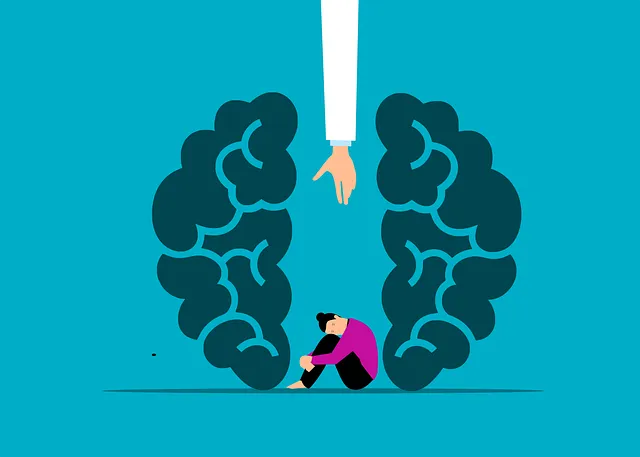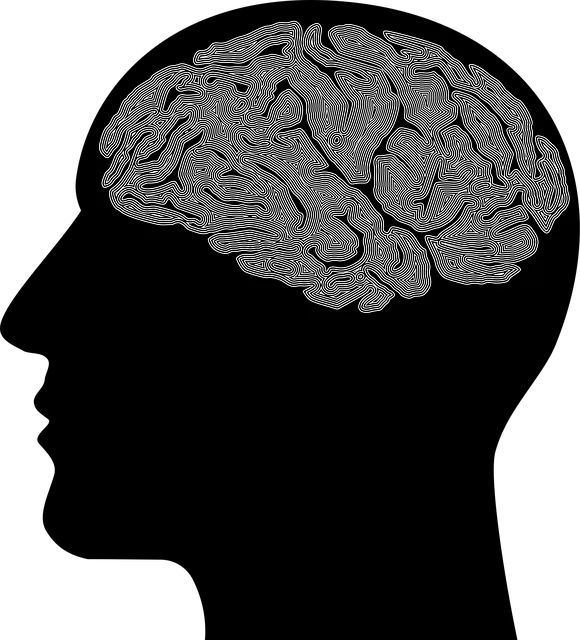The Boulder Kaiser Permanente mental health center prioritizes cultural diversity, offering tailored treatments that consider unique cultural perspectives on well-being. Through continuous learning and inclusive practices, healthcare providers build trust, enhance communication, and provide anxiety relief sensitive to each patient's background. This approach, which includes programs like Mental Wellness Coaching and Compassion Cultivation, aims to meet the diverse needs of the community, promoting holistic mental wellness while overcoming challenges like stigma, language barriers, and cultural misinterpretations.
Cultural sensitivity is an essential aspect of providing quality mental healthcare, especially in diverse communities. This article explores the practices and challenges within Boulder Kaiser Permanente’s mental health center, highlighting the impact of cultural sensitivity on patient care and outcomes. We delve into specific strategies for clinicians to offer culturally competent services, supported by case studies showcasing successful implementations at Kaiser Permanente. Understanding cultural diversity is key to enhancing patient experiences and improving healthcare results.
- Understanding Cultural Diversity in Mental Healthcare at Boulder Kaiser Permanente
- The Impact of Cultural Sensitivity on Patient Care and Outcomes
- Challenges Faced by Clinicians in Providing Culturally Competent Services
- Strategies for Incorporating Cultural Sensitivity into Mental Health Practice
- Case Studies: Successful Implementation of Cultural Sensitivity at Kaiser Permanente
Understanding Cultural Diversity in Mental Healthcare at Boulder Kaiser Permanente

At Boulder Kaiser Permanente mental health center, understanding cultural diversity is paramount in delivering effective care. The center recognizes that individuals from diverse backgrounds may have unique perspectives on mental health and well-being. This awareness guides their approach to treatment, ensuring that every patient receives care tailored to their specific cultural needs. By integrating culturally sensitive practices, the center aims to foster trust, improve communication, and ultimately enhance the overall therapeutic experience.
Boulder Kaiser Permanente encourages its healthcare providers to engage in continuous learning about various cultures and their impact on mental health. This involves understanding the nuances of different self-care routines development for better mental health, as well as burnout prevention strategies essential in serving diverse populations. By promoting these practices, the center not only supports the well-being of its staff but also enhances their ability to provide anxiety relief tailored to each patient’s cultural context, making it a truly inclusive space for everyone seeking mental healthcare services.
The Impact of Cultural Sensitivity on Patient Care and Outcomes

At the Boulder Kaiser Permanente mental health center, cultural sensitivity is a cornerstone of patient care, significantly influencing outcomes. Understanding and respecting diverse cultural backgrounds, beliefs, and practices enable mental healthcare professionals to create safe and supportive environments for patients from various ethnic, racial, and socioeconomic groups. This approach ensures that treatments are not only effective but also culturally relevant, fostering trust and encouraging open communication.
Incorporating Mental Wellness Coaching Programs Development, Compassion Cultivation Practices, and Emotional Healing Processes tailored to individual needs enhances the impact of cultural sensitivity. These strategies not only improve patient satisfaction but also lead to more positive therapeutic outcomes. By embracing a culturally sensitive approach, the Boulder Kaiser Permanente mental health center strives to meet the unique needs of its diverse community, ultimately promoting holistic mental wellness for all.
Challenges Faced by Clinicians in Providing Culturally Competent Services

Clinicians at the Boulder Kaiser Permanente mental health center often encounter challenges when providing culturally competent services. One significant hurdle is understanding and respecting diverse cultural beliefs and practices, which can vary widely among patients from different backgrounds. For instance, some cultures may prioritize collective family decisions over individual choices, while others might have unique approaches to expressing emotions or seeking support. Misinterpretation of these nuances can lead to barriers in building trust and effective communication.
Another challenge lies in navigating sensitive topics, such as mental health stigma, which varies across communities. Patients from certain cultural groups may face unique obstacles related to access, language barriers, or a lack of awareness about available resources. At the Boulder Kaiser Permanente center, addressing these issues involves implementing initiatives like the Community Outreach Program, which fosters connections with diverse communities and promotes resilience-building workshops. Additionally, focusing on depression prevention strategies that are culturally tailored is crucial in ensuring inclusive care.
Strategies for Incorporating Cultural Sensitivity into Mental Health Practice

Incorporating cultural sensitivity into mental health practice at a Boulder Kaiser Permanente mental health center requires intentional strategies. One key approach is to ensure healthcare providers are diverse and reflective themselves, enabling them to better understand and respect different cultural perspectives. Training in emotional intelligence can foster deeper connections with patients from varied backgrounds, facilitating open communication. Additionally, education on conflict resolution techniques empowers professionals to navigate sensitive cultural issues effectively while upholding Mind Over Matter principles, promoting healing environments for all individuals seeking mental health support.
Case Studies: Successful Implementation of Cultural Sensitivity at Kaiser Permanente

At the Boulder Kaiser Permanente mental health center, cultural sensitivity has been successfully integrated through a series of innovative practices. The center recognizes that effective treatment requires an understanding and appreciation of patients’ diverse backgrounds, beliefs, and experiences. To achieve this, they’ve implemented case-specific approaches tailored to meet individual needs, ensuring every patient feels heard and respected.
One notable strategy is the emphasis on resilience building within a supportive environment. By incorporating self-care routine development for better mental health and burnout prevention strategies for healthcare providers, Kaiser Permanente Boulder has created a holistic care model. This approach not only improves patient outcomes but also fosters a sustainable working environment, enabling staff to provide consistent, culturally sensitive care.
Cultural sensitivity in mental healthcare is not just a preference, but an essential practice for improving patient outcomes and fostering trust. As demonstrated by the successful implementation of culturally competent services at Boulder Kaiser Permanente mental health center through various strategies, understanding and navigating cultural diversity can revolutionize care. By recognizing the impact on patient outcomes and overcoming challenges faced by clinicians, healthcare providers can create inclusive environments that enhance the well-being of a diverse range of individuals. This approach is vital in ensuring equitable access to quality mental health services for all, reflecting the values of organizations like Kaiser Permanente.






